
A cyst represents encapsulated air, fluid or semi-liquid material. The membrane of the cyst does not allow any contact between its content and surrounding tissues. Cysts may form in each and every part of the body. The majority of cysts is benign and may withdraw spontaneously. Their size varies a lot and in some cases the grown of the cyst can lead to discomfort, pain or even rupture of the cyst. If the cyst is huge and causes symptoms such as compression of surrounding tissues, pain or there is a great chance it will burst it is treated surgically. In rather rare cases certain cysts may transform into malignant tumors.
Types of Abdominal Cysts
There are several types of abdominal cysts. Three of them are most common and they include mesenteric abdominal cyst, omental abdominal cyst and fetal abdominal cyst.
Mesenteric abdominal cysts form in the mesentery, a double layer of the peritoneum which covers the back wall of the abdominal cavity and certain organs in the abdomen. The cause of these cysts can be inadequate functioning of the lymphatic system. Mesenteric cysts are not so common and the incidence of these cysts is slightly higher in children.
Omental abdominal cysts form in the anterior part of the abdomen, predominantly affecting the area of the stomach and the colon. These cysts are also quite rare.
And finally, fetal abdominal cysts are benign cysts which affect neonatal infants. They can be diagnosed even if the baby is still in the uterus. Fetal abdominal cyst typically affect female fetus and occur due to increased levels of certain hormones. They withdraw spontaneously after the birth. Surgical removal is required only if they are too big and compromise circulation of the infant.
Symptoms of Abdominal Cysts
Small cysts are usually detected accidentally during ultrasound of the abdomen. If large in size cysts can cause pressure onto the surrounding tissues and organs which results in discomfort and pain. In some cases cysts can be even palpated, may cause bleeding, vomiting, and bloating and there is also possibility of intestinal obstruction.
Treatment for Abdominal Cysts
Majority of abdominal cyst withdraw spontaneously and they need no treatment. Small cysts are only monitored and if they start to grow rapidly they are surgically removed. Resection of the cyst is also performed if they cause serious symptoms and discomfort or pain. Surgery is also performed in case cyst causes some of the potential complications such as intestinal obstruction, bleeding etc.
- www.womenshealth.gov/a-z-topics/ovarian-cysts
- www.womenshealth.gov/files/documents/fact-sheet-ovarian-cysts.pdf
- Photo courtesy of Genusfotografen (Tommas Gunnarsson) by Wikimedia Commons: commons.wikimedia.org/wiki/File:Abdomen,_19-year-old.jpg



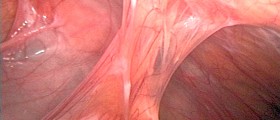



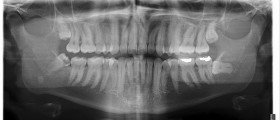


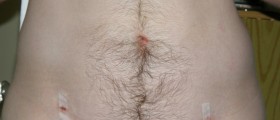
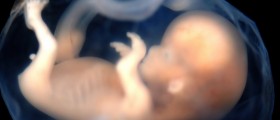


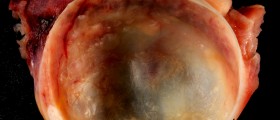


Your thoughts on this
Loading...